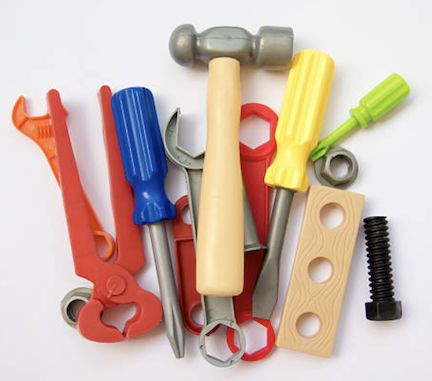Cultivating Empathy
Denmark has been teaching mandatory empathy curriculum to their students aged 6 to 16 since 1993, with pretty impressive results. Currently ranked #2 on the World Happiness Report dashboard, it has consistently ranked among the happiest nations throughout the modern era.

As reported:
Denmark’s empathy program starts at age six in the first year of school and continues until age sixteen. For one hour each week, the children have empathy lessons during ‘Klassens tid’ or ‘The Class’s Hour’. ...
What many people don’t realise is that empathy is a learned skill, and that teaching empathy from a young age has not only been proven to make children more emotionally and socially competent, it also greatly reduces bullying and can also help them be more successful as adults in the future. ...
Any problem is open for discussion and could be personal problems or problems between individual students or groups, anything regarding the school or even unrelated to school. The rest of the class, and the teacher then debate ways to solve the problem. The teacher helps the students by teaching them how to really listen to and understanding others. ...
Klassens tid, is the students’ opportunity to be heard and receive encouragement and inspiration from others through listening and simultaneously learn the importance of mutual respect.
Surely we, in our churches, our classrooms, and our families, could take a page out of Denmark's text book to actively teach the principles of empathy and compasstion. They are, after all, learned behaviors ... and the benefits bode well for the happiness and spiritual health of both the giver and the recipient!
"Bear one another's burdens, and so fulfill the law of Christ" (Galatians 6:2, ESV).
"Rejoice with those who rejoice, weep with those who weep" (Romans 12:15, ESV).
"Be kind to one another, tenderhearted, forgiving one another, as God in Christ forgave you" (Ephesians 4:32, ESV).
"If one member suffers, all suffer together; if one member is honored, all rejoice together" (1 Corinthians 12:26, ESV).
"Put on then, as God's chosen ones, holy and beloved, compassionate hearts, kindness, humility, meekness, and patience" (Colossians 3:12, ESV).
Our Children Are a Part of Us
What an amazing piece of art, digital though it may be. In it, the essence and even substance of the child is "made" from the essense and substance of the parent. The one's holes are the other's gain.

[Though it is digital] it is not an AI-generated piece. It was created by Chad Knight, a digital artist known for his surreal and emotionally resonant 3D art … this sculpture is a digital creation and doesn’t exist as a tangible, physical object. It was rendered using 3D modeling software and is meant to be experienced visually on screens rather than in a gallery or museum space.
This grpahic artistry captures beautifully the symbiotic relationship between parent and child. Our children are literally formed out of the matter our own physical being -- the egg, the sperm, the DNA which we contribute. Then as we raise them, we continually, sacrificially give ourselves to them for their growth and welfare. Over time, they are molded and shaped by the fabric of our being, and then reflect, to some measure, the image of our likeness. We are inextricably intertwined.
And yet, as significant as our own symbiotic relationship is with our children, it is infinitely more true of our relationship with God, our Father. We are made in His image. It is He that has made us. In the Person of Jesus, He sacrficed Himself for our own welfare. He is our ultimate model, and we are called to be conformed to His image.
"So God created man in his own image, in the image of God he created him; male and female he created them" (Genesis 1:27, ESV).
"And to put on the new self, created after the likeness of God in true righteousness and holiness" (Ephesians 4:24, ESV).
Useful Tools
Any of us with children know the experience of our little ones wanting to "help" when we we're in the middle of some grown-up activity or project. Picture yourself in the middle of some home repair when your 5 year old comes out of the house with their toy tools and tool belt, saying, "I want to help you, dad." Our initial reaction may be to shoo them asside and tell them that we will play with their toys later, knowing that they would be more in the way than anything.
That's when we realize that in their mind, their tools (although made of plastic) were real tools, and that their abilities (as limited as they are) are useful for the job. You can see in their little eyes a true desire to help, a true desire to make their mom or dad proud.
We know that if we allow them to "help" it will likely make the job less efficeint and more cumbersome. But in that moment we realize that the effeciency of the job is so much less important than the joy (and experience!) our child would get from helping us.

As we consider such a scenario, we cannot help but see the Word of God in plain sight. God desires for us to follow Him and serve Him. He desires us to join him in the work of the ministry and in reaching the lost with the Gospel. But we're like clumsy, ill-equipped children in His service.
Truly, God does not "need" our help. He can accomplish much with or without us. Yet, over time, he will provide us increasingly more sophisticated tools as he hones our gifts and abilities, and we will become increasingly more useful co-laborers in the work of His ministry.
"All Scripture is breathed out by God and profitable for teaching, for reproof, for correction, and for training in righteousness, that the man of God may be complete, equipped for every good work" (2 Timothy 3:16-17, ESV).
"Now may the God of peace, who through the blood of the eternal covenant brought back from the dead our Lord Jesus, that great Shepherd of the sheep, equip you with everything good that you may do his will, working in us that which is pleasing in his sight, through Jesus Christ, to whom be glory forever and ever. Amen" (Hebrews 13:20-21, ESV).
"For we are his workmanship, created in Christ Jesus for good works, which God prepared beforehand, that we should walk in them" (Ephesians 2:10, ESV).